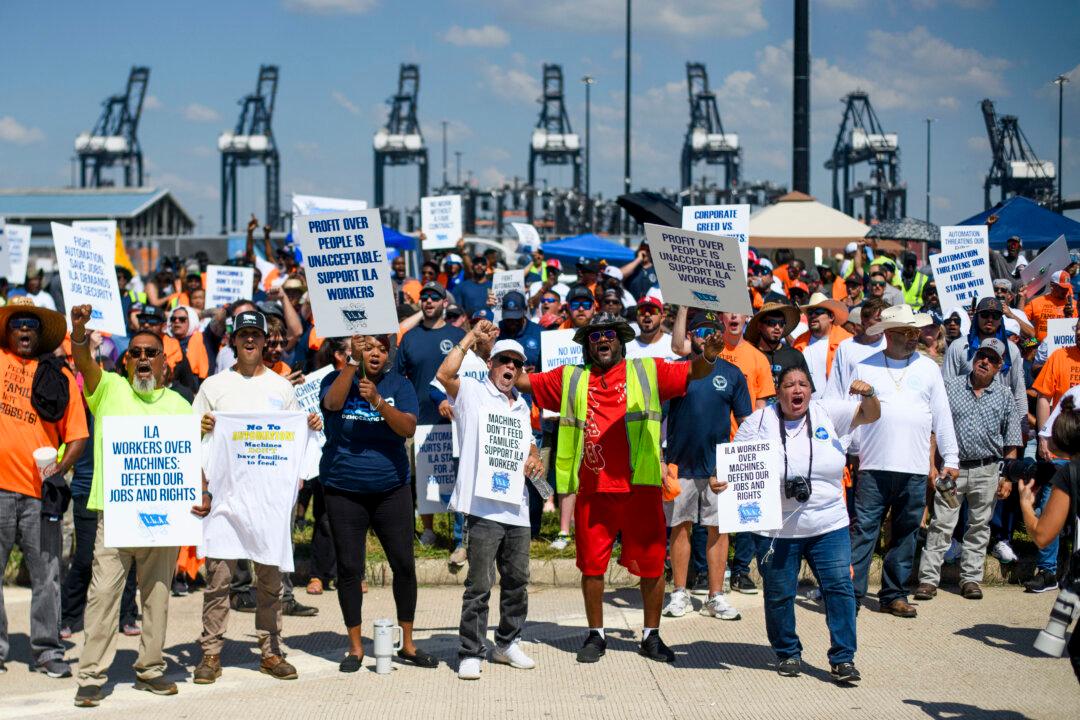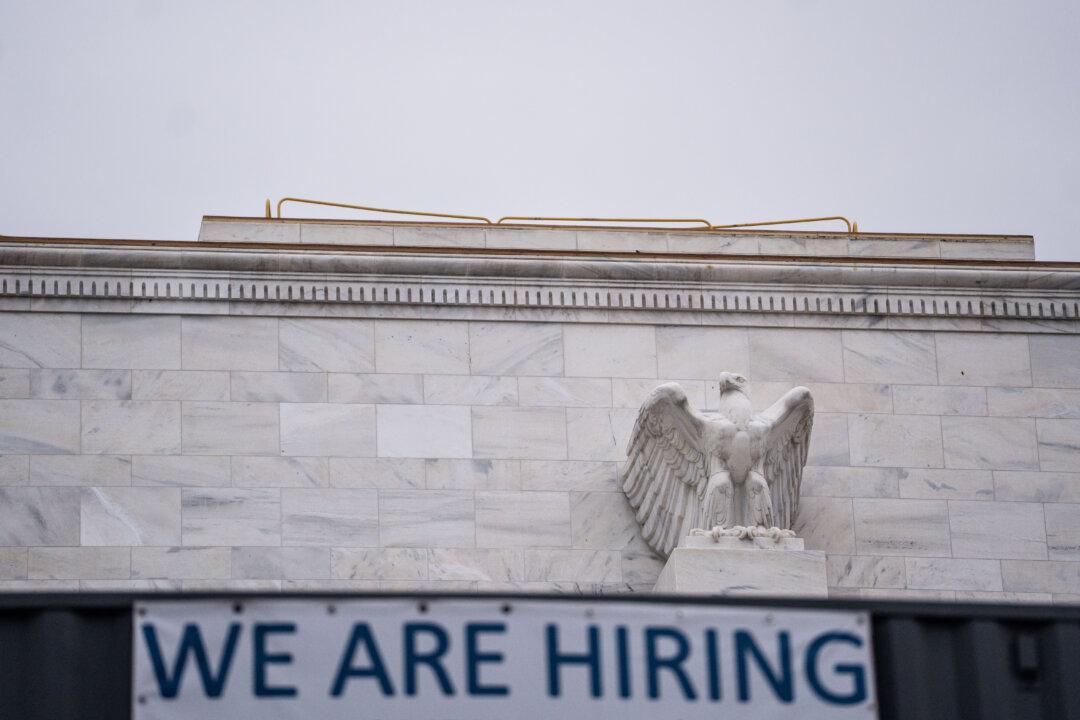Tens of thousands of dock and port workers are heading back to work after their union and the U.S. Maritime Alliance (USMX) reached a tentative agreement to end the labor dispute on Oct. 3.
The International Longshoremen’s Association (ILA), North America’s largest union of maritime workers, established a provisional wage deal with the USMX.





